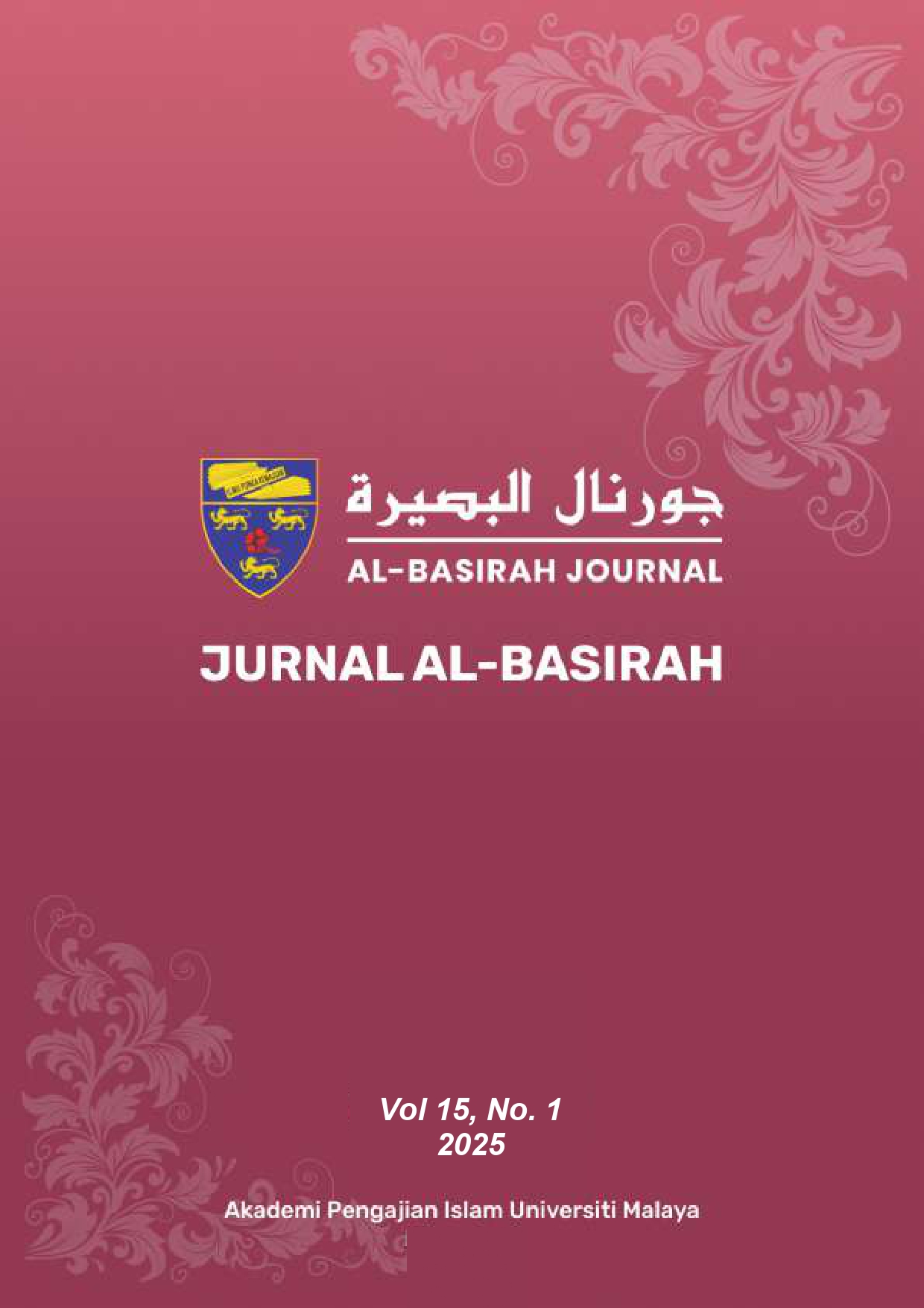الوسطية العقدية في منهج أهل السنة والجماعة وأثرها في إدارة التنوع الديني والثقافي: دراسة تطبيقية على النموذج الماليزي
Theological Moderation in the Methodology of Ahl al-Sunnah wa al-Jama‘ah and its Role in Managing Religious and Cultural Diversity: An Applied Study on the Malaysian Model
DOI:
https://doi.org/10.22452/basirah.vol15no1.5Keywords:
Moderation, Ahl al-Sunnah wa al-Jamāʿah, Religious and Cultural Diversity, MalaysiaAbstract
This study aims to shed light on the concept of doctrinal moderation (al-wasaṭiyyah al-ʿaqādiyyah) within the framework of Ahl al-Sunnah wa al-Jamāʿah, and to explore its role in managing religious and cultural diversity, with a specific focus on the Malaysian model as a case study. The central problem lies in how the moderate methodology of Ahl al-Sunnah can be effectively utilized to formulate a practical framework for managing religious and cultural plurality—one that avoids social conflict and fosters societal cohesion and stability. The study adopts an analytical methodology that integrates both theoretical and practical dimensions. It examines the theological and intellectual sources of Ahl al-Sunnah wa al-Jamāʿah, alongside an empirical analysis of the Malaysian experience as a living example. The research addresses several core themes: the concept and foundations of doctrinal moderation in Sunni thought, the stance of Ahl al-Sunnah toward religious and cultural diversity, and an analysis of the mechanisms employed in the Malaysian context. The findings highlight that adherence to the moderate theological approach of Ahl al-Sunnah promotes balance and moderation, which in turn support values of tolerance and peaceful coexistence. This has significantly contributed to the effective management of religious and cultural diversity in Malaysia and has strengthened national unity. The study thus affirms the distinctive role played by the moderate Sunni methodology in shaping the Malaysian experience.

















